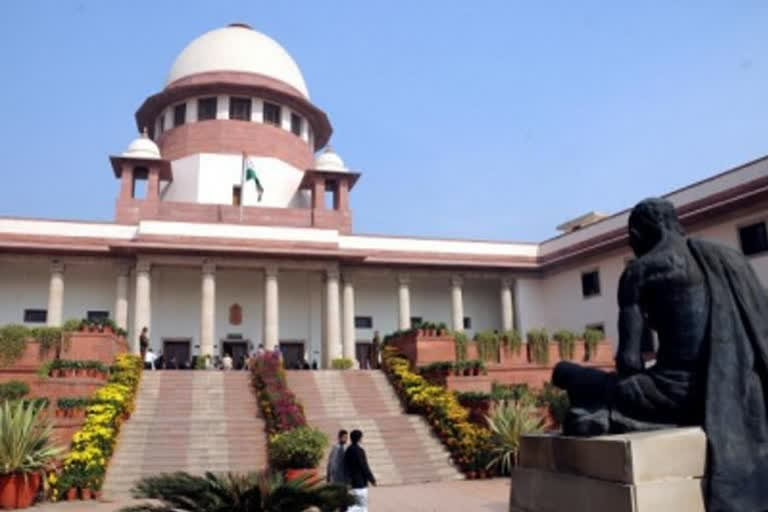New Delhi: "A woman can become pregnant by choice irrespective of her marital status," the Supreme Court said on Thursday, underlining the right to decisional autonomy also means women may choose the course of their lives.
The top court said a woman is often enmeshed in complex notions of family, community, religion, and caste and such external societal factors affect the way she exercises autonomy and control over her body, particularly in matters relating to reproductive decisions. In its landmark decision, the top court expanded the scope of the Medical Termination of Pregnancy (MTP) Act and the corresponding rules to include unmarried women for abortion between 20-24 weeks of pregnancy, saying limiting the provision to cover only married women will render it discriminatory and violative of Article 14 of the Constitution.
A bench of Justices DY Chandrachud, AS Bopanna and JB Pardiwala said besides the physical consequences, unwanted pregnancies, which women are forced to carry to term, may have cascading effects on the rest of their lives by interrupting their education, career, or affecting their mental well-being. "A woman can become pregnant by choice irrespective of her marital status. In case the pregnancy is wanted, it is equally shared by both the partners. However, in case of an unwanted or incidental pregnancy, the burden invariably falls on the pregnant woman affecting her mental and physical health," it said.
The top court's verdict came on an appeal of a woman from the North East challenging the Delhi High Court order denying her permission to abort her pregnancy out of a consensual relationship after her partner refused to marry and left her. The bench added that Article 21 of the Constitution recognises and protects the right of a woman to undergo termination of pregnancy if her mental or physical health is at stake. "Importantly, it is the woman alone who has the right over her body and is the ultimate decision maker on the question of whether she wants to undergo an abortion, it said.
Justice Chandrachud, while writing the 75-page verdict on behalf of the bench said the ambit of reproductive rights is not restricted to the right of women to have or not have children. "It also includes the constellation of freedoms and entitlements that enable a woman to decide freely on all matters relating to her sexual and reproductive health.
"Reproductive rights include the right to access education and information about contraception and sexual health, the right to decide whether and what type of contraceptives to use, the right to choose whether and when to have children, the right to choose the number of children, the right to access safe and legal abortions, and the right to reproductive healthcare," the judgement said. The court noted that women must also have the autonomy to make decisions concerning these rights, free from coercion or violence, but they are often enmeshed in complex notions of family, community, religion, and caste.
"Societal factors often find reinforcement by way of legal barriers restricting a woman's right to access abortion. The decision to have or not to have an abortion is borne out of complicated life circumstances, which only the woman can choose on her own terms without external interference or influence," it said. The bench added that reproductive autonomy requires that every pregnant woman has the intrinsic right to choose to undergo or not to undergo abortion without any consent or authorisation from a third party.
"The right to reproductive autonomy is closely linked with the right to bodily autonomy. As the term itself suggests, bodily autonomy is the right to take decisions about one's body. The consequences of an unwanted pregnancy on a woman's body as well as her mind cannot be understated. "The foetus relies on the pregnant woman's body for sustenance and nourishment until it is born", the bench said.It added the biological process of pregnancy transforms a woman's body to permit this and she may experience swelling, body ache, contractions, morning sickness, and restricted mobility, to name a few of a host of side effects.
"A mere description of the side effects of a pregnancy cannot possibly do justice to the visceral image of forcing a woman to continue with an unwanted pregnancy. Therefore, the decision to carry the pregnancy to its full term or terminate it is firmly rooted in the right to bodily autonomy and decisional autonomy of the pregnant woman," the court underlined. (PTI)



